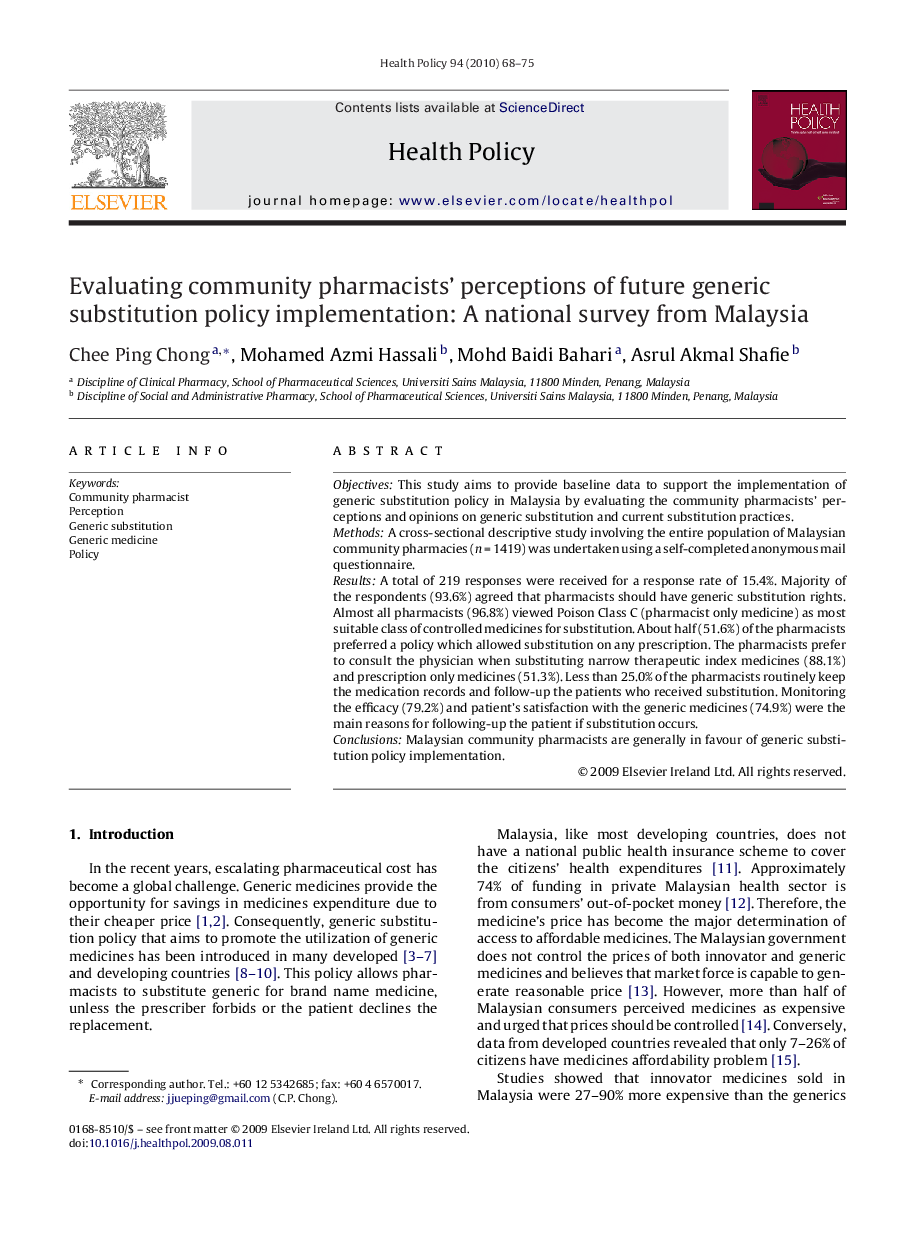| Article ID | Journal | Published Year | Pages | File Type |
|---|---|---|---|---|
| 4198322 | Health Policy | 2010 | 8 Pages |
ObjectivesThis study aims to provide baseline data to support the implementation of generic substitution policy in Malaysia by evaluating the community pharmacists’ perceptions and opinions on generic substitution and current substitution practices.MethodsA cross-sectional descriptive study involving the entire population of Malaysian community pharmacies (n = 1419) was undertaken using a self-completed anonymous mail questionnaire.ResultsA total of 219 responses were received for a response rate of 15.4%. Majority of the respondents (93.6%) agreed that pharmacists should have generic substitution rights. Almost all pharmacists (96.8%) viewed Poison Class C (pharmacist only medicine) as most suitable class of controlled medicines for substitution. About half (51.6%) of the pharmacists preferred a policy which allowed substitution on any prescription. The pharmacists prefer to consult the physician when substituting narrow therapeutic index medicines (88.1%) and prescription only medicines (51.3%). Less than 25.0% of the pharmacists routinely keep the medication records and follow-up the patients who received substitution. Monitoring the efficacy (79.2%) and patient's satisfaction with the generic medicines (74.9%) were the main reasons for following-up the patient if substitution occurs.ConclusionsMalaysian community pharmacists are generally in favour of generic substitution policy implementation.
